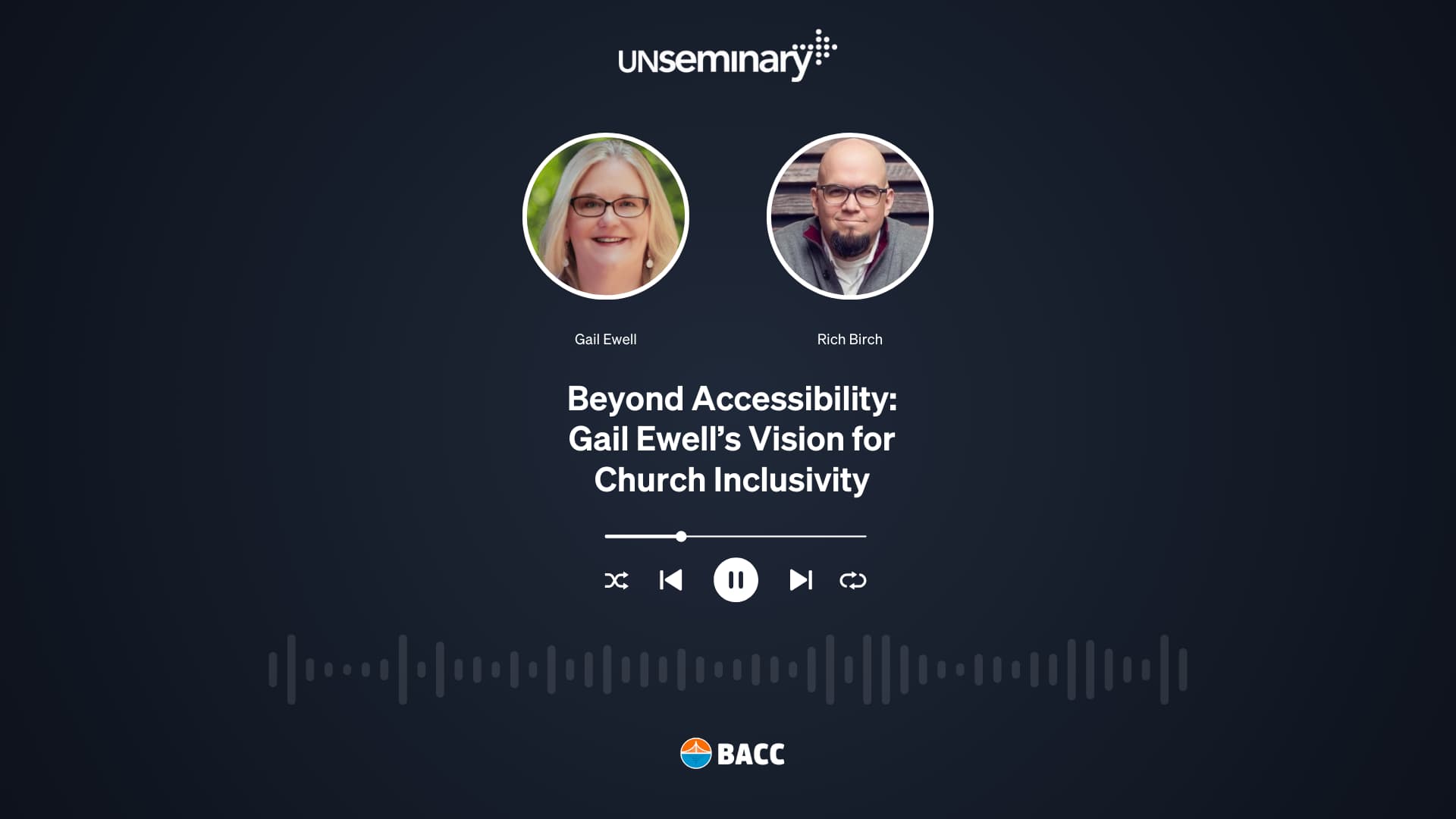Sign up for The Good Stuff
Our weekly newsletter filled with news, updates, and inspiring stories of how God is working in the Bay Area.
"*" indicates required fields
Sign up for The Good Stuff
Our weekly newsletter filled with news, updates, and inspiring stories of how God is working in the Bay Area.
"*" indicates required fields
Recently at our church services, we made prayer a focus for the entire month. We heard great lessons on prayer, circled up for prayer times and many of us took extra time to pray. During that time we learned that prayer can change our day, our attitude, and our heart condition, how we view our circumstances and the direction and success of our life.
Yet in spite of the potency of prayer, too many of us are still struggling to enjoy the fruits of a powerful prayer life. Recently while reading Philippians 4 I realized something in my prayer life that I was missing – thankfulness.
No thankfulness, no peace
Always be full of joy in the Lord. I say it again—rejoice! 5 Let everyone see that you are considerate in all you do. Remember, the Lord is coming soon. 6 Don’t worry about anything; instead, pray about everything. Tell God what you need, and thank him for all he has done. 7 Then you will experience God’s peace, which exceeds anything we can understand. His peace will guard your hearts and minds as you live in Christ Jesus.
Philippians 4:4-7 NLT
Paul was teaching the church in Philippi not to worry, but instead to pray about everything. We do this by telling God what we need and thanking him for all he has done. I had no problem with telling God what I need, but I had not treated thankfulness with the same importance.
My prayer life is dominated by asking God for help or for help for others. Unfortunately, I often didn’t experience the peace promised through prayer and this scripture helped me understand why: I was missing gratitude.
Devote yourselves to prayer with an alert mind and a thankful heart.
Colossians 4:2 NLT
Always be joyful. 17 Never stop praying. 18 Be thankful in all circumstances, for this is God’s will for you who belong to Christ Jesus.
1 Thessalonians 5:16-18 NLT
Thankfulness is more than a feeling
I realize that most of us acknowledge when something good has happened and are thankful to God for his kindness shown to us or others. Yes, God wants us to be thankful for his kindness, but he wants more than emotions driving our gratitude.
Make thankfulness your sacrifice to God, and keep the vows you made to the Most High. 15 Then call on me when you are in trouble, and I will rescue you, and you will give me glory.”
Psalm 50:14-15 NLT
Set out a sacrifice I can accept: your thankfulness. Be true to your word to the Most High. 15 When you are in trouble, call for Me. I will come and rescue you, and you will honor Me.”
Psalm 50:14-15 (Voice)
God wants our thankfulness to honor him. This kind of thankfulness does not happen only when something good happens to us, but it’s rather how we think all the time, what our hearts focus on – how we honor God.
This kind of thankfulness is not dependent on circumstances or emotion. Often the thankfulness we experience is an emotional response to something good happening, but God wants us to be thankful all the time.
Generosity comes from thankfulness
Azariah, the chief priest and a Zadokite, answered. Azariah: The Eternal One has favored His people, and they have shown their thankfulness with immense generosity. Since the Israelites began bringing their gifts to the Eternal’s temple, there has been more than enough to eat and have plenty left over to sacrifice.
2 Chronicles 31:10 (Voice)
This scripture teaches us that thankfulness is expressed through generosity – immense generosity. Generosity is not limited to financial giving, but is an attitude characterized as unselfish and big-hearted. If you know a generous person, you know what I’m talking about. You walk away feeling like you were given to more than you gave.
Generous people are encouraging and make you feel special; they are interested in what you are saying. They are inviting and hospitable and always leave a place better than they found it. Thankfulness produces generosity.
Thankfulness is a defense against temptation
Another benefit to thankfulness is it provides a defense against the temptation to sin.
Let there be no sexual immorality, impurity, or greed among you. Such sins have no place among God’s people. 4 Obscene stories, foolish talk, and coarse jokes—these are not for you. Instead, let there be thankfulness to God. 5 You can be sure that no immoral, impure, or greedy person will inherit the Kingdom of Christ and of God. For a greedy person is an idolater, worshiping the things of this world.
Ephesians 5:3-5 NLT
In the absence of thankfulness we will find something to indulge or gratify our sinful nature. Gratitude is a defense to self-indulgence. Life is hard, and one of the challenges we face when life is hard is how easy it is to feel sorry for ourselves- to become self-piteous. Self-pity then becomes a justification for self-indulgence. We rationalize that life is hard or unfair or both and we have earned the right to do something to feel good, telling ourselves, “after all I’m a victim of life’s unfairness.”
This thought process often leads us to a shortcut through self-indulgence. Self-indulgence can take on many forms like greed, impurity, isolation, binging on Netflix, ice cream, cookies, chips. Or, we can indulge in negative, bitter or greedy thoughts. Self-indulgence rooted in self-pity is all-consuming, innovative and opportunistic. But self-indulgence has little power in the face of thankfulness.
What dominates your thought life? How easily do you feel sorry for yourself? Can you see a connection between self-indulgence and self-pity?
We must be careful not to lose our thankfulness
We have to be careful not to lose our thankfulness. In the downward spiral toward becoming unspiritual, it is often the first domino to fall.
Surely you remember that I was sick when I first brought you the Good News.14 But even though my condition tempted you to reject me, you did not despise me or turn me away. No, you took me in and cared for me as though I were an angel from God or even Christ Jesus himself. 15 Where is that joyful and grateful spirit you felt then? I am sure you would have taken out your own eyes and given them to me if it had been possible. 16 Have I now become your enemy because I am telling you the truth?
Galatians 4:13-16 NLT
Paul’s stop in Galatia was a result of an illness rather than a planned visit. However, he made the best of the situation and many people become Christians. Apparently, this illness was pretty ugly, and Paul recognized that the Galatians could have been tempted to reject him or despise him as a result. However, because Paul shared with them the good news about Jesus they instead become joyful and grateful.
If you have become a Christian you experienced forgiveness of sins. Do you remember when you were learning about your own sins and their impact on God, you and other people? You probably remember some very challenging conversations during that time. Maybe you had to call and apologize to one or more people. But remember how joyful and grateful you were? Well, the Galatians had forgotten. Paul is asking what happened to their joy and their grateful spirit. What we learn from Paul’s letter to the Galatians is that we can lose our gratitude.
How grateful are you today? Do you feel the joy and gratitude you felt when you were saved? If not, what happened? Maybe you need to take time to reflect and remember how much God has done for you and what He has saved you from. This might seem cliche’, but you would benefit from making a list of things you are grateful for. Maybe add to that list each day for a week or a month.
Do you want to become more thankful?
And now, just as you accepted Christ Jesus as your Lord, you must continue to follow him. 7 Let your roots grow down into him, and let your lives be built on him. Then your faith will grow strong in the truth you were taught, and you will overflow with thankfulness.
Colossians 2:6-7 NLT
If you don’t overflow with thankfulness – meaning it’s not natural or typical of you to think about things you are grateful for without being asked – reflect on where you get your strength. For example, do you get strength from attention and approval from others? Success? Competition? Status? Financial security? How you look? Your strength should come from God.
Are you building your life on human wisdom? Tradition? Emotions? Personal experiences?
These are great topics to reflect and have conversations with friends or family members to get insight and clarity on how to become a more thankful person. Your life should be built on God (Matthew 7:24). Happy building, and thanks for listening ;)

Written by
Stone Eleazer
Stone Eleazer is the director of operations at the Bay Area Christian Church, and is an editor for BACC Inspire.
How the simple step of a church extending friendship can transform a community.
Mother’s Day gives us the chance to celebrate the moms, mothers-to-be, and maternal figures in our lives
God’s desire is that Jesus lives in all of us, which is why we are passionate advocates for inclusion in the church.


